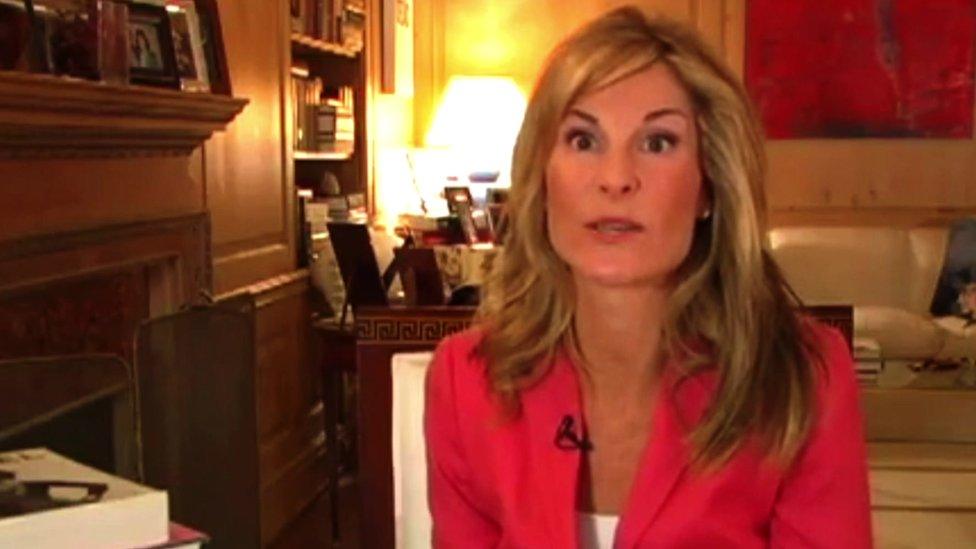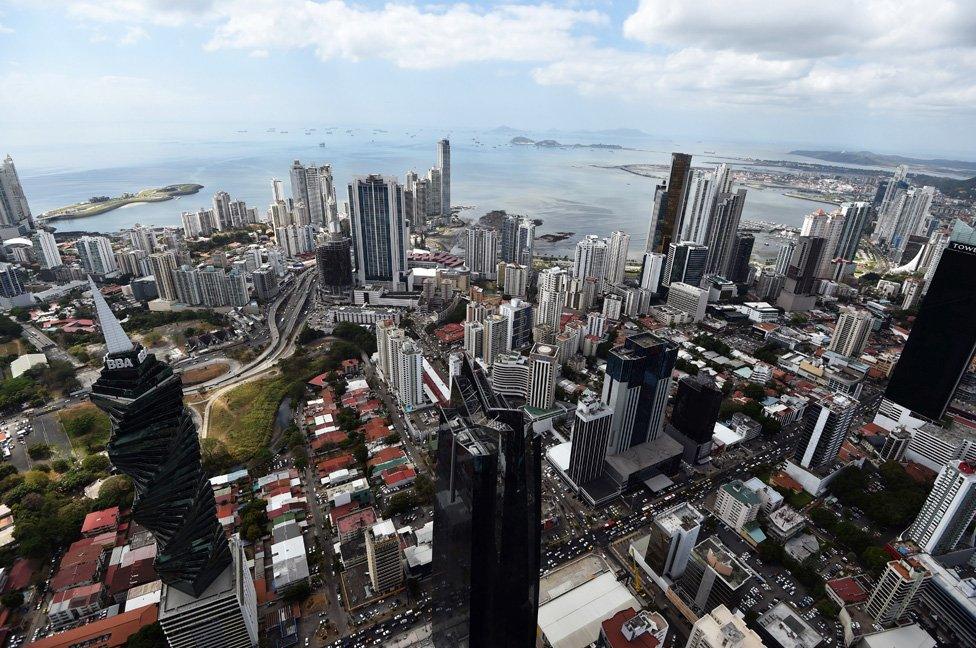Panama Papers: How a British man, 90, covered for a US millionaire
- Published

Ms Olszewski is a money expert and life coach
The Panamanian law firm Mossack Fonseca says it does everything possible to ensure the offshore companies it sets up are not used for illicit purposes. But documents seen by the BBC show that isn't always true. One of the clearest examples of how the company breaks the rules involves a 90-year-old British man and an American millionaire.
Eight years ago, business guru Marianna Olszewski had a problem.
The author of Live it, Love it, Earn it (A Woman's Guide to Financial Freedom) offers financial advice directed at American women. Some of her personal fortune had been invested using a secret offshore company.
But in 2008, at the height of the financial crisis, she decided she wanted to get her $1.8m back.
The problem was that the bank that held the funds wouldn't release the cash without knowing who was behind the offshore company - and Ms Olszewski was desperate to keep her identity secret.
'Sensitive manner'
Mossack Fonseca was willing to help. It offered to provide somebody who would pretend to be the real - or beneficial - owner of the cash.
An email from a Mossack executive to Ms Olszewski in January 2009 explained how she could deceive the bank: "We may use a natural person who will act as the beneficial owner… and therefore his name will be disclosed to the bank. Since this is a very sensitive matter, fees are quite high."

Panama: Home to law firm Mossack Fonseca
She replied: "I do think we should go ahead with the natural person however I want to have your promise that you… will handle this in the most sensitive manner."
The "natural person" Mossack Fonseca offered turned out to be a 90-year-old British citizen.
Mossack Fonseca told Ms Olszewski that the service would be expensive because it was so sensitive. Fees were normally $30,000 (about £20,000 at the time) for the first year and $15,000 for every subsequent year. But she was offered a discount - just $10,000 for year one and $7,500 for every year after.
One reason for the high cost is likely to have been the degree of deception. Another email from Mossack details what would be involved:
"We need to hire the Natural Person Nominee, pay him, make him sign lots of documents to cover us, make him sign resignations, make him get some proofs evidencing that he has the economic capacity to place such amount of moneys, letters of reference, proof of domicile, etc, etc."
It's a blatant breach of anti-money laundering rules, but Ms Olszewski signed up anyway.
Andrew Mitchell QC, one of the UK's leading experts on money laundering, has no doubt the bank would have been deceived.
"Anybody looking at all these documents will believe that it is entirely legitimately owned by this person," he said.
"Mossack Fonseca are prepared to go to that length in order to assist their client. Basically creating a real, live human being to look to the world as if they own the assets, when in fact and in truth, they know, as their client knows, that that person is a sham."
The revelation that offshore companies are providing services of this nature could undermine the UK government's plan to create greater transparency.
UK Prime Minister David Cameron has pinned his hopes for reform on a new register that will force British companies to reveal their beneficial owners.
But the register won't work properly if companies like Mossack Fonseca pay people to pretend to be the beneficial owner.
Marianna Olszewski failed to respond when Panorama attempted to contact her about this story by phone, email and letter.
In a statement Mossack Fonseca said: "Your allegations that we provide structures supposedly designed to hide the identity of the real owners, are completely unsupported and false.
"We do not provide beneficiary services to deceive banks. It is difficult, not to say impossible, not to provide banks with the identity of final beneficiaries and the origin of funds."

Panama Papers - tax havens of the rich and powerful exposed
Eleven million documents held by the Panama-based law firm Mossack Fonseca have been passed to German newspaper Sueddeutsche Zeitung, which then shared them with the International Consortium of Investigative Journalists, external. BBC Panorama is among 107 media organisations - including UK newspaper the Guardian, external - in 76 countries which have been analysing the documents. The BBC doesn't know the identity of the source
They show how the company has helped clients launder money, dodge sanctions and evade tax
Mossack Fonseca says it has operated beyond reproach for 40 years and never been accused or charged with criminal wrong-doing
Tricks of the trade: How assets are hidden and taxes evaded
Panama Papers: Full coverage; follow reaction on Twitter using #PanamaPapers; in the BBC News app, follow the tag "Panama Papers"
Watch Panorama on the BBC iPlayer (UK viewers only)
